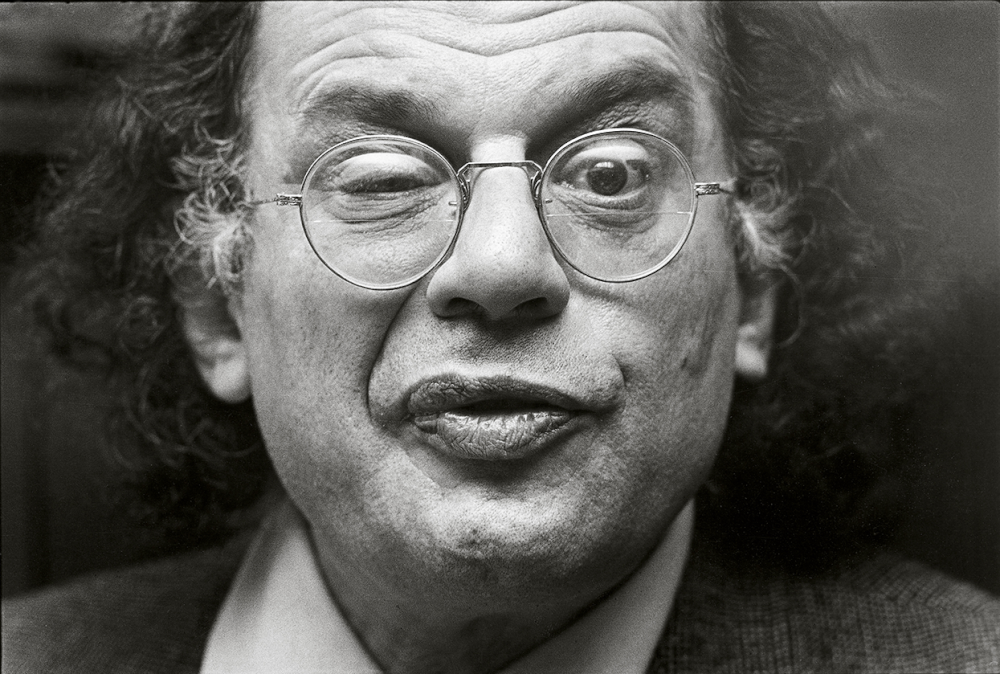Every week, the editors of The Paris Review lift the paywall on a selection of interviews, stories, poems, and more from the magazine’s archive. You can have these unlocked pieces delivered straight to your inbox every Sunday by signing up for the Redux newsletter.
Blast into The Paris Review’s archive with Allen Ginsberg’s 1966 Art of Poetry interview, where he recounts his spacey hallucinations; Robert Olen Butler’s story “ ‘Help Me Find My Spaceman Lover’ ”; and Cynthia Zarin’s poem “Saturn.”
Allen Ginsberg, The Art of Poetry No. 8
Issue no. 37 (Spring 1966)
If I close my eyes on hallucinogens, I get a vision of great scaly dragons in outer space, they’re winding slowly and eating their own tails. Sometimes my skin and all the room seem sparkling with scales, and it’s all made out of serpent stuff. And as if the whole illusion of life were made of reptile dream.
“Help Me Find My Spaceman Lover”
By Robert Olen Butler
Issue no. 140 (Fall 1996)
I never thought I could fall for a spaceman. I mean, you see them in the newspaper and they kind of give you the willies, all skinny and hairless and wiggly-looking, and if you touched one, even to shake hands, you just know it would be like when you were about fifteen and you were with an earth boy and you were sweet on him but there was this thing he wanted, and you finally said okay, but only rub-a-dub, which is what we called it around these parts when I was younger, and it was the first time ever that you touched . . . well, you know what I’m talking about. Anyway, that’s what it’s always seemed like to me with spacemen, and most everybody around here feels about the same way, I’m sure. Folks in Bovary, Alabama, and environs—by which I mean the KOA camp off the interstate and the new trailer park out past the quarry—everybody in Bovary is used to people being a certain way, to look at and to talk to and so forth. Take my daddy. When I showed him a few years ago in the newspaper how a spaceman had endorsed Bill Clinton for president and they had a picture of a spaceman standing there next to Bill Clinton—without any visible clothes on, by the way —the space man, that is, not Bill Clinton, though I wouldn’t put it past him, to tell the truth, and I’m not surprised at anything they might do over in Little Rock. But I showed my daddy the newspaper and he took a look at the spaceman and he snorted and said that he wasn’t surprised people like that was supporting the Democrats, people like that don’t even look American, and I said no, Daddy, he’s a spaceman, and he said people like that don’t even look human, and I said no, Daddy, he’s not human, and my daddy said, that’s what I’m saying, make him get a job.
Saturn
By Cynthia Zarin
Issue no. 105 (Winter 1987)
The father of two silver medal figure skaters
said, “When they were eight and ten, I built a rink, twenty
by forty in the yard, without a fence. There was nothing
for them to hold on to . . . knew they were stars right away.”
At night, off Central Park, the Planetarium turnsup its closed, calcified, tyrannosaurus eye to
something other, not heraldic heaven, where Saturn,
lonely (we think), anthemless, has rings of whizzing ice
that just last week astronomers thought were wider. But some
are only ten feet thick. Not much more than a stellar …
If you enjoy these free interviews, stories, and poems, why not subscribe to read the entire archive? You’ll also get four new issues of the quarterly delivered straight to your door.
from The Paris Review https://ift.tt/2Oy668E



Comments
Post a Comment